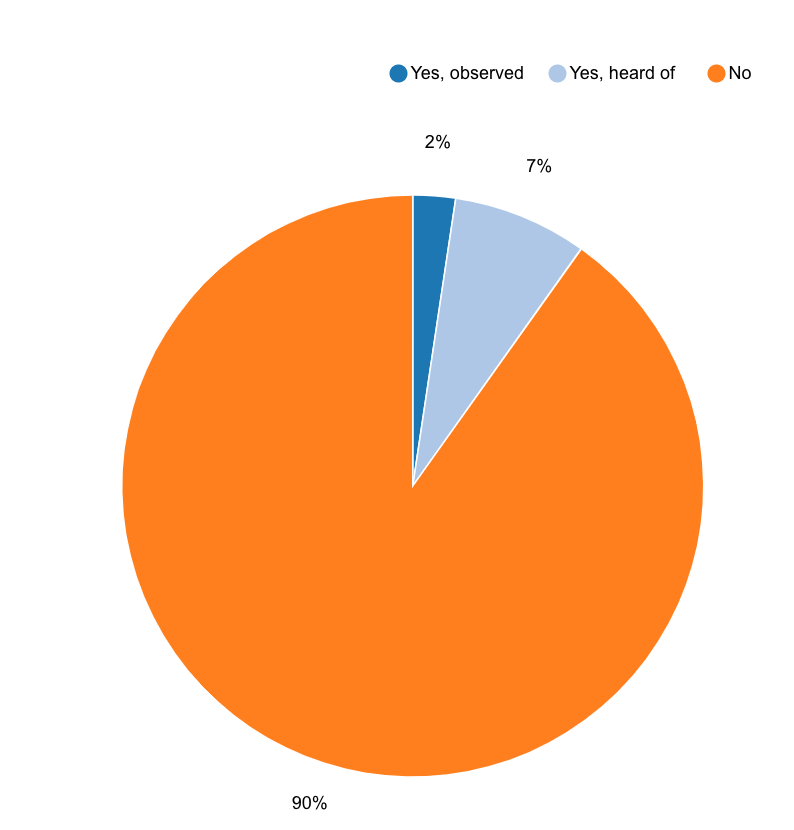
2016 National Elections
BEFORE THE ELECTION
The Coalition of Domestic Election Observers (CODEO) deployed 138 long-term observers (LTOs) to track the general political environment, including election-related preparatory activities by state and non-state actors, civic/voter education programs as well as political party campaign activities. Guided by a checklist, bi-weekly field reports were submitted from August 1, 2016 - November 18, 2016 by the LTOs in 138 randomly-selected constituencies covering all 10 regions of Ghana.
On December 7th, 2016, Ghana held largely peaceful presidential and legislative elections, after a tense pre-election period which included some incidents of violence. To reduce tensions and dissuade violence before, on, and after election day, all seven presidential candidates pledged their commitment to peaceful polls by signing the Accra Declaration, which was organized by the National Peace Council. This reflects Ghana’s broader commitment to transparent, free, and inclusive democratic processes.

Ghana Pre-Election Election-Related Violence Specifically Targeting Women
During the pre-election period observers reported very few incidents of election-related violence, intimidation, or harassment specifically directed at women. Of the cumulative 1059 observation, from 138 observers over the pre-election period, there were only two occasions where observers witnessed incidents of violence directed and women and three reported instances where observers heard of these incidents. This is generally in line with anecdotal evidence, news, and reports from NDI’s international election day delegation.

Ghana Pre-Election Election-Related Violence
Observed incidents of election-related violence, intimidation, and harassment were relatively low. Of the bi-weekly pre-election observations by 138 observers, these types of incidents were witnessed fourteen times and heard of 31 times, while 1014 observations showed that the observer did not hear of or witness such acts during that biweekly period. This data is congruent with initial reports of a tense pre-election period, with various reported acts of violence throughout the country.

Ghana Pre-Election Observation of CSOs Conducting Women Candidate Training
During the pre-election period, there were 25 observations of civil society organizations (CSOs) conducting women candidate trainings and 79 instances of observers hearing of such trainings occurring. While this does not indicate the absence or presence of election violence, it is important to note that community involvement in fostering an inclusive atmosphere for female politicians and voters contributes to tolerance and the progression of society towards equality.

Ghana Pre-Election Party Campaign Platform or Leading Speaker Feature a Woman
During the pre-election period, 75 percent of CODEO observations, recorded by the 138 LTO observers during bi-weekly observation periods, noted that political parties did not feature women in their campaign platform or as a leading speaker during that bi-weekly period. At the high end, the NPP party was observed including a woman in their platform or as a leading speaker in 210 observations, 39 for the NDC party, and 2 for the CPP party. These observations show that women were significantly less visible than men in the election campaigns.
PRE-ELECTION FINDINGS SUMMARY
CODEO-observed incidents of violence against women were low during the pre-election period. This, coupled with anecdotal evidence and other pre-election indicators including empowerment and party inclusion indicates that while violence may be low, Ghana has room to improve in encouraging women’s political participation.
ELECTION DAY
Continuing its commitment to election observation in Ghana, CODEO deployed 7,000 nonpartisan citizen observers to all 275 constituencies in the country. Of these, a random and representative sample of 1,500 conducted a parallel vote tabulation (PVT) to observe the opening, voting and counting process. Due to the absence of gender disaggregated data, there is no way to determine whether the few reported incidents of harassment on election day were perpetrated against or by women, which is why we have decided not to include these data here.
Other countries
The Votes Without Violence project, initially developed by the National Democratic Institute, has examined violence against women in elections in the following countries. You can view each country's data individually or check out our cross-country analysis.
Burma
Cote D'Ivoire
Contested claims of victory during Côte d’Ivoire’s 2010 presidential election—the first in a decade—triggered widespread post-election violence, in which women were often the first victims.